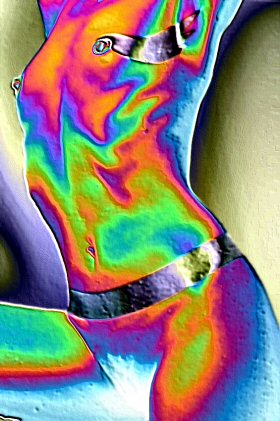 Modern television programming has a relatively high level of sexual content with associated risky sexual behaviors, and while most people with direct experience with such behaviors are not influenced by its portrayal on TV, a new study shows that those without direct experience are more likely to participate in those unsafe behaviors in the future - regardless of the consequences displayed.
Modern television programming has a relatively high level of sexual content with associated risky sexual behaviors, and while most people with direct experience with such behaviors are not influenced by its portrayal on TV, a new study shows that those without direct experience are more likely to participate in those unsafe behaviors in the future - regardless of the consequences displayed. Reporting their findings in the Journal of Communication, Robin L. Nabi and Shannon Clark of the University of California conducted two studies to assess whether or not televised depictions of risky sexual behaviors altered viewers' expectations of their own future sexual behaviors, regardless of their consequences.
In the first study, the researchers examined the contents of television programming schemas and found that viewers expect main characters to ultimately survive and thrive despite whatever adversity they face. In the second study, college women were exposed to various portrayals of promiscuous sexual behavior (such as one night stands) that were edited to display more or less positive or negative outcomes.
The researchers found that the portrayals of the risky behavior were likely to affect only those without direct experience of the target behavior. Most interestingly, the portrayal of outcomes - good or bad - did not affect attitudes or intentions regarding that behavior.
Specifically, for those who had not previously had a one night stand, viewing fictional depictions of this behavior significantly increased expectations of the likelihood of having one in the future, regardless of the positive or negative outcomes portrayed. "Even when behaviors are negatively portrayed, audiences may be motivated to model them anyways," the researchers concluded.
Related:
Alcohol, Drugs And Age Pivotal To HIV Risk
Macho Attitudes Undermining Adolescent Sexual Health
Social Expectations Frustrating Safe Sex Message
How TV Moulds Teen Attitudes To Sex
Source: Journal of Communication

